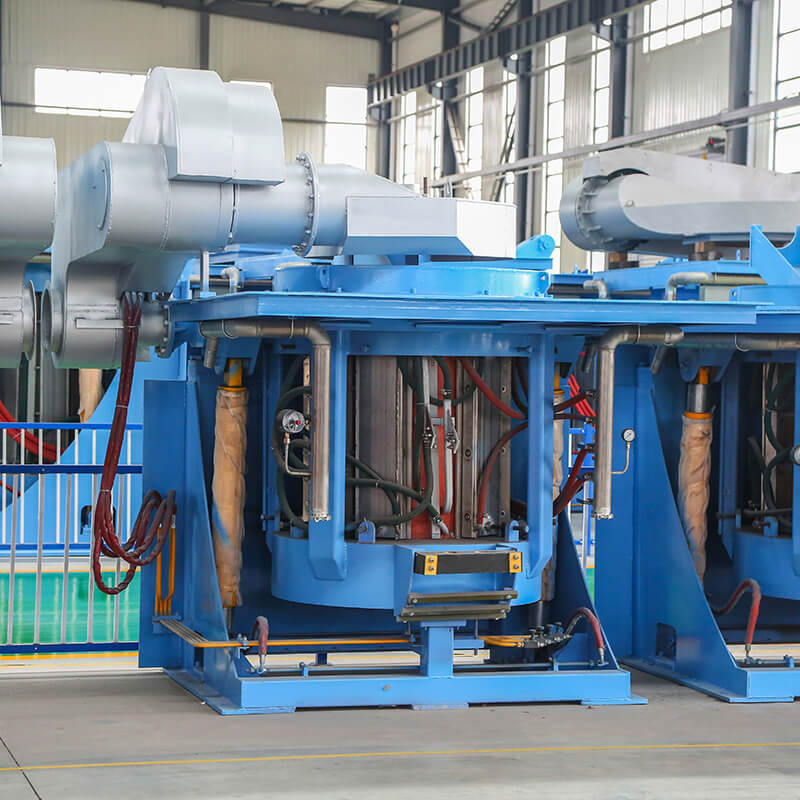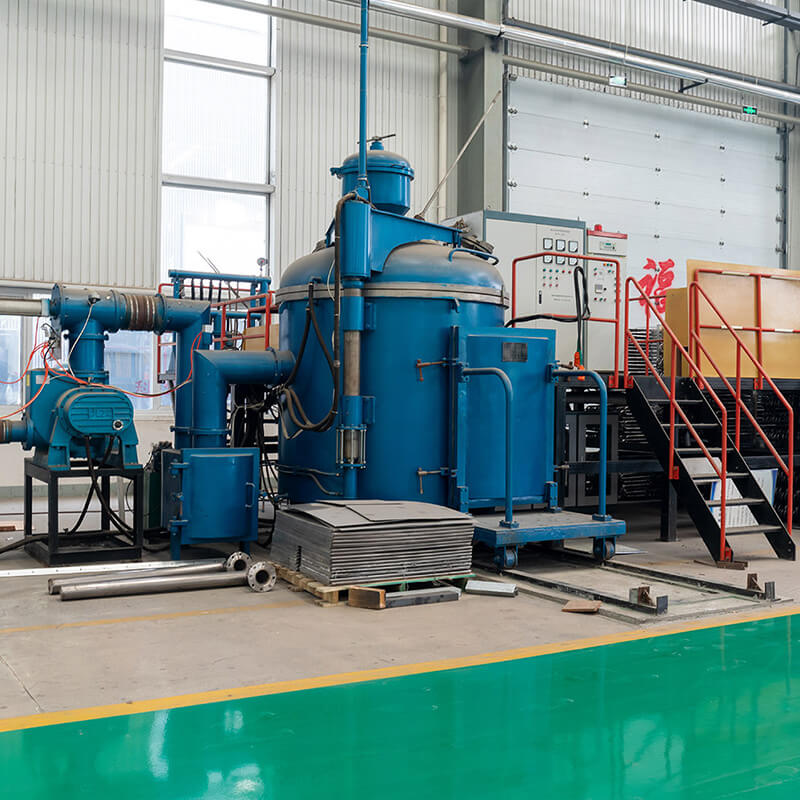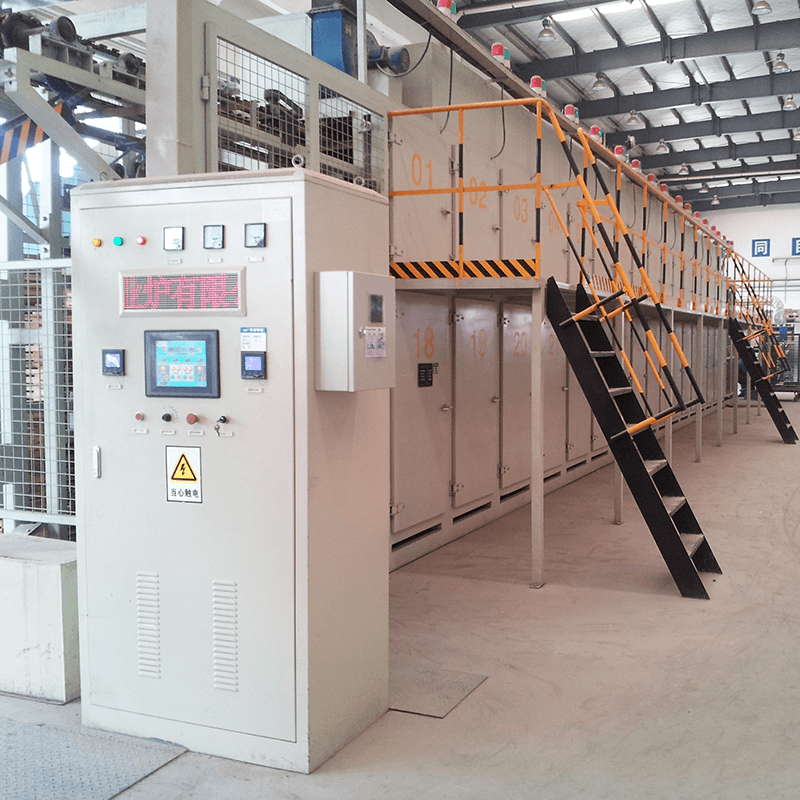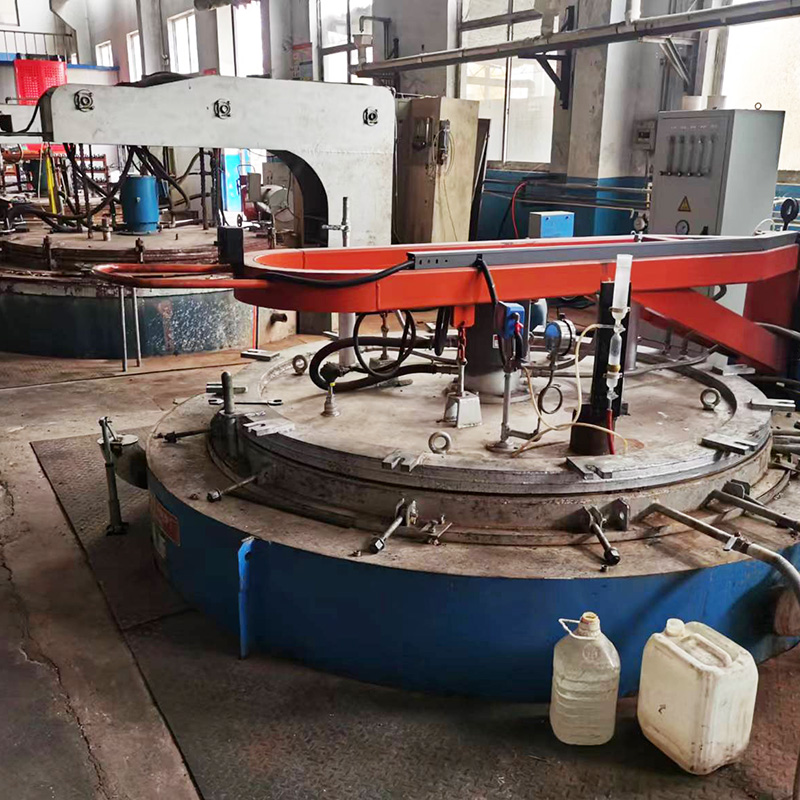Kehua Intellient Equipment is a professional manufacturer for Medium frequency induction melting and heating equipmets, which is located in Weifang City, Shandong China, regards “quality as life , integrity as fundamental”, always implements customer service as the center , takes advanced quality management system , advanced mature technical force and perfect after-sales service system as its guarantee, and provides customers with more and more good products, technologies and services.
Our products mainly include:heat treatment furnace,electric furnaces,water-cooled pumps,induction furnace,smelting furnaces,melting furnace,elevator furnaces,high-temperature furnaces,tube furnaces,etc. Our company provides heating and treatment equipment for laboratories, domestic and foreign universities, research institutes, factories, as well as industries such as petrochemicals, smelting, casting, mechanical manufacturing, and military industry. Our products have been exported to more than 20 countries and regions around the world, Including Europe,Africa,America and other regions, as well as Ethiopia,Svalbard,Micronesia, Federated States of,Croatia,Mongolia,Greenland,North Korea, and other countries.
| # | gas versus electric furnace Parameter | Information
|
| 1 | Product catalog: | Induction Furnace
|
| 2 | Material:
| Stainless steel, heat-resistant steel, refractory materials, etc
|
| 3 | Usage: | Processing of plastic materials,Semiconductor material production,Manufacturing alloys,Casting and forging,Ceramic manufacturing |
| 4 | Color:
| Customized
|
| 5 | Place of Origin:
| Weifang, Shandong, China
|
| 6 | Packing:
| Standard export packing
|
| 7 | Marketing Type: | Ordinary Product
|
| 8 | Quality Guarantee:
| 1 year
|
| 9 | Brand Name:
| Kehua
|
| 10 | Export region:
| America,Africa,Asia
Costa Rica,Zambia,Luxembourg,Western Sahara,Sudan
|
| 11 | Order Lead Time:
| 30-40 days after the order is confirmed
|
| 12 | Packing size(cm):
| 312*185*181 Specific consultation with us
|
| 13 | OEM/ODM:
| Acceptale
|
| 14 | MOQ: | 1 set |
| 15 | Certificate: | ISO90001 |
| 16 | Weight(kg):
| 3746
|
| 17 | Key Selling Points:
| Competitive Price
|
| 18 | After-sales service:
| Provide assembly and commissioning, training and eliminate risks, one stop solution to your worries
|
| 19 | Video outgoing-inspection
| Provided
|
| 20 | Voltage
| 110V/220V/38V |
Please note: This table is for reference only, please consult us for specific information.

gas versus electric furnace is an electric heating device that utilizes electrical energy to generate high temperatures and heat them. Its main working principle is to convert electrical energy into thermal energy, and transfer the thermal energy to the heating material through heating elements, thereby heating it up.
Consisting of a power connector, electronic controller, heating element, and housing. The power connector supplies electrical energy to the electronic controller, which controls the operation of the heating element based on the required temperature setting and actual temperature situation of the heating material.
12 months warranty once the equipment is ready for production.Kehua provide warranty parts free of charge within 12 months or at market competitive price when out of expiration. Kehua have been realizing the importance of feedback from users and providing technical and service supports from the born day, which is also driving us to step together with metal casting, forging and heat treatment industry.




gas versus electric furnace---FAQs Guide
1.How long is the lifespan of this gas versus electric furnace?
The lifespan of an gas versus electric furnace can vary depending on the make and model, but typically they last between 15 and 20 years.
2.What is the control method for gas versus electric furnace?
The most common control method for gas versus electric furnace is a thermostat. The thermostat is used to regulate the temperature of the furnace by turning the heating elements on and off as needed. Other control methods include using a timer, a programmable thermostat, or a remote control.
3.Does the gas versus electric furnace have an overheating protection mechanism?
Yes, most gas versus electric furnace have an overheating protection mechanism. This typically includes a high-limit switch that will shut off the furnace if the temperature gets too high.

4.Is there a remote monitoring or alarm system for the gas versus electric furnace?
Yes, there are several remote monitoring and alarm systems available for electric furnaces. These systems can be used to monitor the temperature, humidity, and other conditions in the furnace, as well as alert you to any potential problems.
5.How does the temperature control system of an gas versus electric furnace work?
The temperature control system of an electric furnace works by using a thermostat to measure the temperature of the air inside the furnace. The thermostat then sends a signal to the furnace's control board, which in turn activates the heating elements to increase or decrease the temperature as needed. The control board also monitors the temperature and will shut off the heating elements when the desired temperature is reached.
6.As a gas versus electric furnace manufacturer,do you provide other supporting tools besides medium frequency induction furnace, and what are them?
Yes, according to the customer requirements, we provide the following supporting tools:
a).Transformer
b) Push-out lining system
c) Loading cell system
d).Charging system for solid material
e).Deslag system
f). Emergency diesel generator

7.About gas versus electric furnace, how about the warranty?
We provide assembly and debugging, training, and risk elimination to address your concerns in a one-stop shop. Quality assurance: 1 year. Provide free accessories during the warranty period; After the warranty period, timely provision of accessories, discounted prices, and guidance on installation and debugging.
8.What is the shell material of the gas versus electric furnace?
The shell material of an gas versus electric furnace typically consists of steel, stainless steel, or cast iron.
9.What are the heating elements of an electric furnace?
The heating elements of an electric furnace are typically made of metal coils or rods that are heated by electricity. The heated coils or rods then transfer the heat to the air that is circulated throughout the home.

10.Does this gas versus electric furnace meet environmental standards?
It depends on the specific model and age of the electric furnace. In general, electric furnaces manufactured after 1992 must meet certain environmental standards, such as those set by the Environmental Protection Agency (EPA). It is best to contact the manufacturer of the electric furnace to determine if it meets the necessary standards.
11.What different industrial fields can electric furnace be applied to?
We have advantages in marketing and channel expansion. Suppliers have established good cooperative relations, continuously improved workflows, improved efficiency and productivity, and provided customers with high -quality products and services.
Electric furnaces can be used in a variety of industrial fields, including:
1. Metalworking: Electric furnaces are used to melt and alloy metals, such as steel, aluminum, and copper.
2. Ceramics: Electric furnaces are used to fire ceramic products, such as pottery and tiles.
3. Glassmaking: Electric furnaces are used to melt and shape glass products.
4. Refractory: Electric furnaces are used to produce refractory materials, such as bricks and insulation.
5. Petrochemical: Electric furnaces are used to refine and process petroleum products.
6. Heat Treatment: Electric furnaces are used to heat treat metals and alloys.
7. Food Processing: Electric furnaces are used to dry and process food products.
12.Do gas versus electric furnace have energy-saving characteristics?
Yes, gas versus electric furnace can have energy-saving characteristics. Many electric furnaces are designed with energy-saving features such as variable speed blowers, two-stage heating, and programmable thermostats. These features can help reduce energy consumption and lower energy bills.

13.What is the noise level of the gas versus electric furnace?
The noise level of an electric furnace will vary depending on the model and size of the furnace. Generally, electric furnaces are quieter than gas furnaces, but some models may be louder than others. To determine the exact noise level of your electric furnace, you should consult the manufacturer's specifications.
Tags:electric furnace salem ohio,vacuum tubular furnace,wood electric furnace,gas furnace need electricity

























